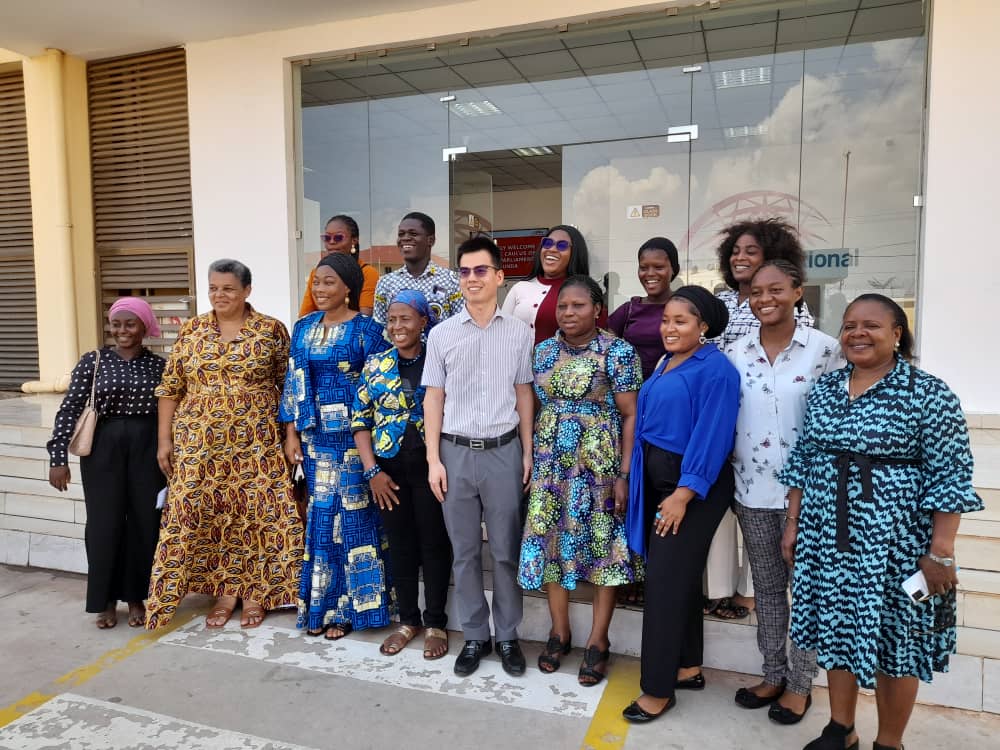|
Getting your Trinity Audio player ready...
|
Two local manufacturers of sanitary pads, Sunda Ghana Limited and Faytex Ghana Limited have appealed to the government to fulfill its 2024 budget promise of giving them tax exemptions to reduce the cost of their products.
The Minority women’s caucus in parliament supported their plea during a visit to their factories in Accra on Monday, December 11.
The caucus said that many women, especially in rural areas, cannot afford sanitary pads due to high import duties, VAT, and other taxes.
They called on the government to exempt sanitary pads from taxes as some other countries have done.
Second Deputy Minority Whip and member for Ada, Comfort Doyoe Cudjoe, who led the team expressed expectation that the government will take action and implement the promises it made in the 2024 Budget next January.
She stated that the pleas should not just be discussions and urged for concrete actions.

“Considering the capabilities of these manufacturers, significant support is required for them to effectively supply the entire country. Therefore, we implore the government to step in and provide the necessary assistance.”
“The manufacturers are currently facing substantial challenges, and immediate support is crucial. Our specific request is for the government to eliminate all taxes related to sanitary pads,” she added.
The managing director of Sunda Ghana Limited, Ye Wei, said that his company produces 600 million pieces of sanitary pads and 400 million pieces of panty liners per year, which is more than enough to meet the local demand.
He said that his products are 30% cheaper than the imported ones and that he is ready to invest more with government’s support.
The management of Faytex Ghana Limited also expressed their readiness to increase their production and lower their prices with tax relief from the government.
The company’s Managing Director, Jeanine Hage-All, expressed their readiness to increase production and meet the growing demand for sanitary pads if the government removes the taxes on them.
She said the company is currently operating below its full potential, at only 30% of its capacity.
She praised the government for its initiative to support women’s health in Ghana by exempting sanitary pads from taxes.
“This will not only ensure the availability of these essential products but also make them more affordable for women who need them.”
She revealed that the company has plans to expand its operations and establish a new factory at Nsawam once the policy is approved by Parliament.
Lydia Lamisi Akanvariba, the MP for Tempane, noted that the main challenge facing the companies is the high cost of importing raw materials, which makes sanitary pads expensive for women, especially in rural areas.
She said the caucus expects the government to implement the tax exemptions in January and eliminate the 21.9% tax component on sanitary pads to reduce their price.
“If the prices go down, more people will be able to buy them and the government can also provide them for those who cannot afford them,” she said.
The MPs were joined by women representatives from various universities in Accra.




